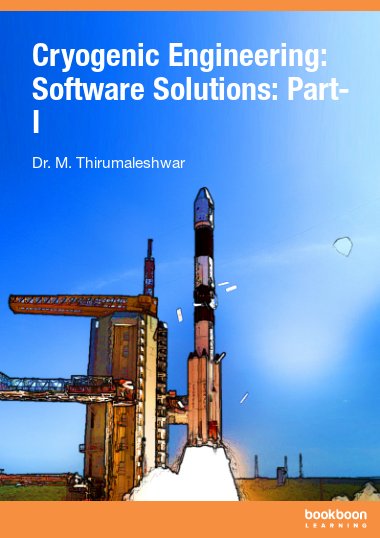This book, viz. Cryogenic Engineering: Softwaresolutions – Part-I focuses on solving problems in cryogenic engineering using software such as Engineering Equation Solver (EES), Mathcad and EXCEL. This book should be helpful to students, teachers and researchers when used in conjunction with any standard text book on this subject.
According to National Institute of Standards and Technology (NIST), ‘Cryogenic temperature range’ generally refers to temperatures below -150 C i.e. 123 K. Cryogenic Engineering deals with production, storage, transfer and safe handling, measurement and utilization of cryogenic fluids.
Applications of cryogenics are many and in diverse fields such as: Rocket propulsion, High energy Physics, Electronics, Medical, Food processing, Manufacturing processes etc.
This book deals with two chapters, viz. Properties of cryogenic fluids and Properties of materials at low temperatures.Primarily, here we have a collection of information and data from various sources, the focus being on the data that will be useful for engineers to design cryogenic systems.
